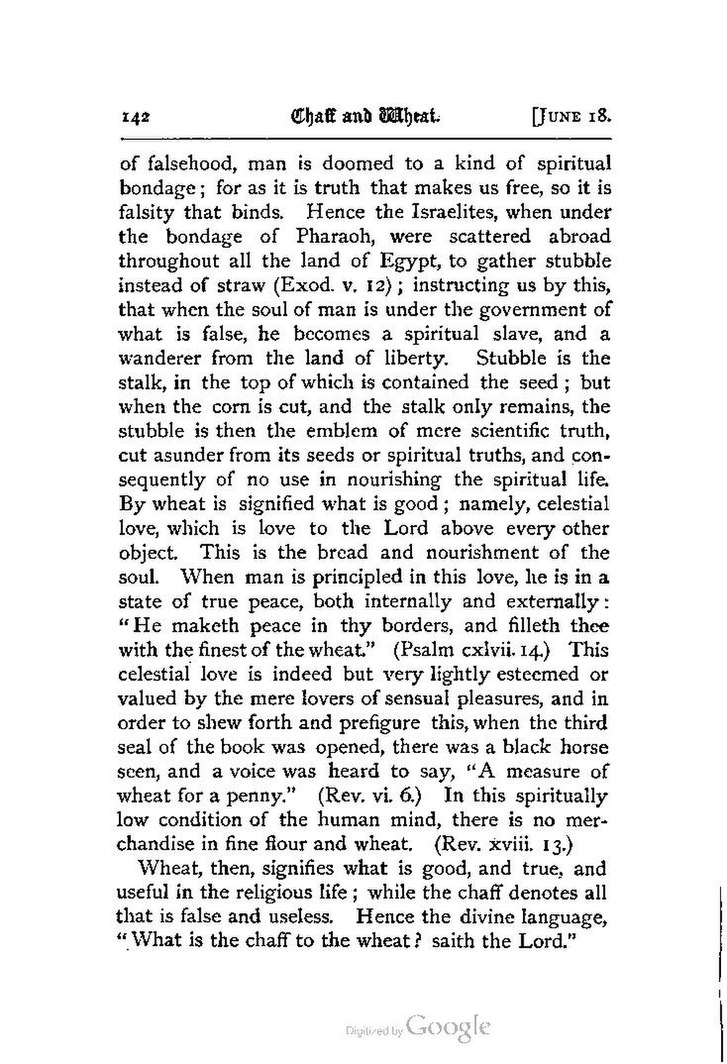of falsehood, man is doomed to a kind of spiritual bondage; for as it is truth that makes us free, so it is falsity that binds. Hence the Israelites, when under the bondage of Pharaoh, were scattered abroad throughout all the land of Egypt, to gather stubble instead of straw (Exod. v. 12); instructing us by this, that when the soul of man is under the government of what is false, he becomes a spiritual slave, and a wanderer from the land of liberty. Stubble is the stalk, in the top of which is contained the seed; but when the corn is cut, and the stalk only remains, the stubble is then the emblem of mere scientific truth, cut asunder from its seeds or spiritual truths, and consequently of no use in nourishing the spiritual life. By wheat is signified what is good; namely, celestial love, which is love to the Lord above every other object. This is the bread and nourishment of the soul. When man is principled in this love, he is in a state of true peace, both internally and externally: "He maketh peace in thy borders, and filleth thee with the finest of the wheat." (Psalm cxlvii. 14.) This celestial love is indeed but very lightly esteemed or valued by the mere lovers of sensual pleasures, and in order to shew forth and prefigure this, when the third seal of the book was opened, there was a black horse seen, and a voice was heard to say, "A measure of wheat for a penny." (Rev. vi. 6.) In this spiritually low condition of the human mind, there is no merchandise in fine flour and wheat. (Rev. xviii. 13.)
Wheat, then, signifies what is good, and true, and useful in the religious life; while the chaff denotes all that is false and useless. Hence the divine language, "What is the chaff to the wheat? saith the Lord."
